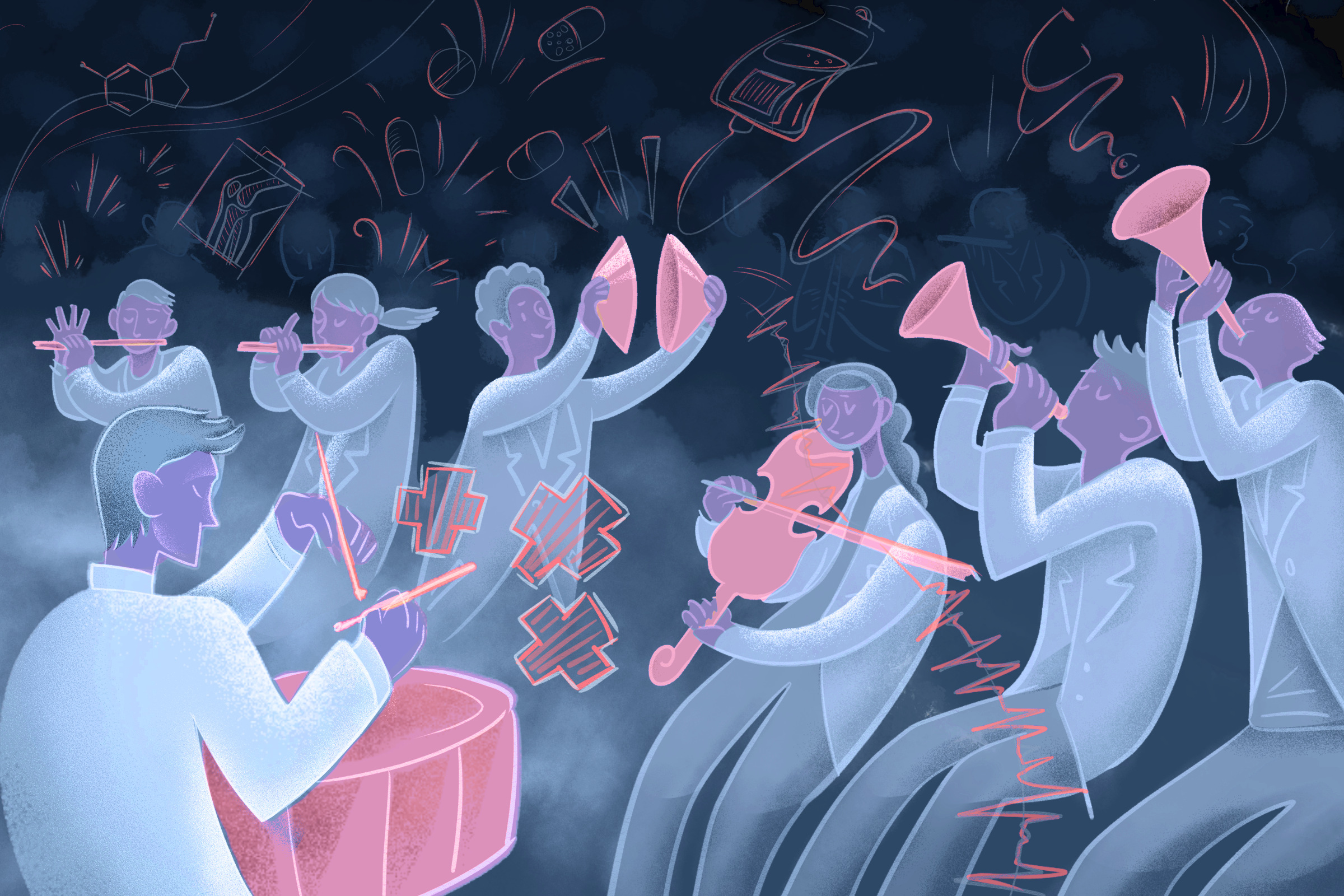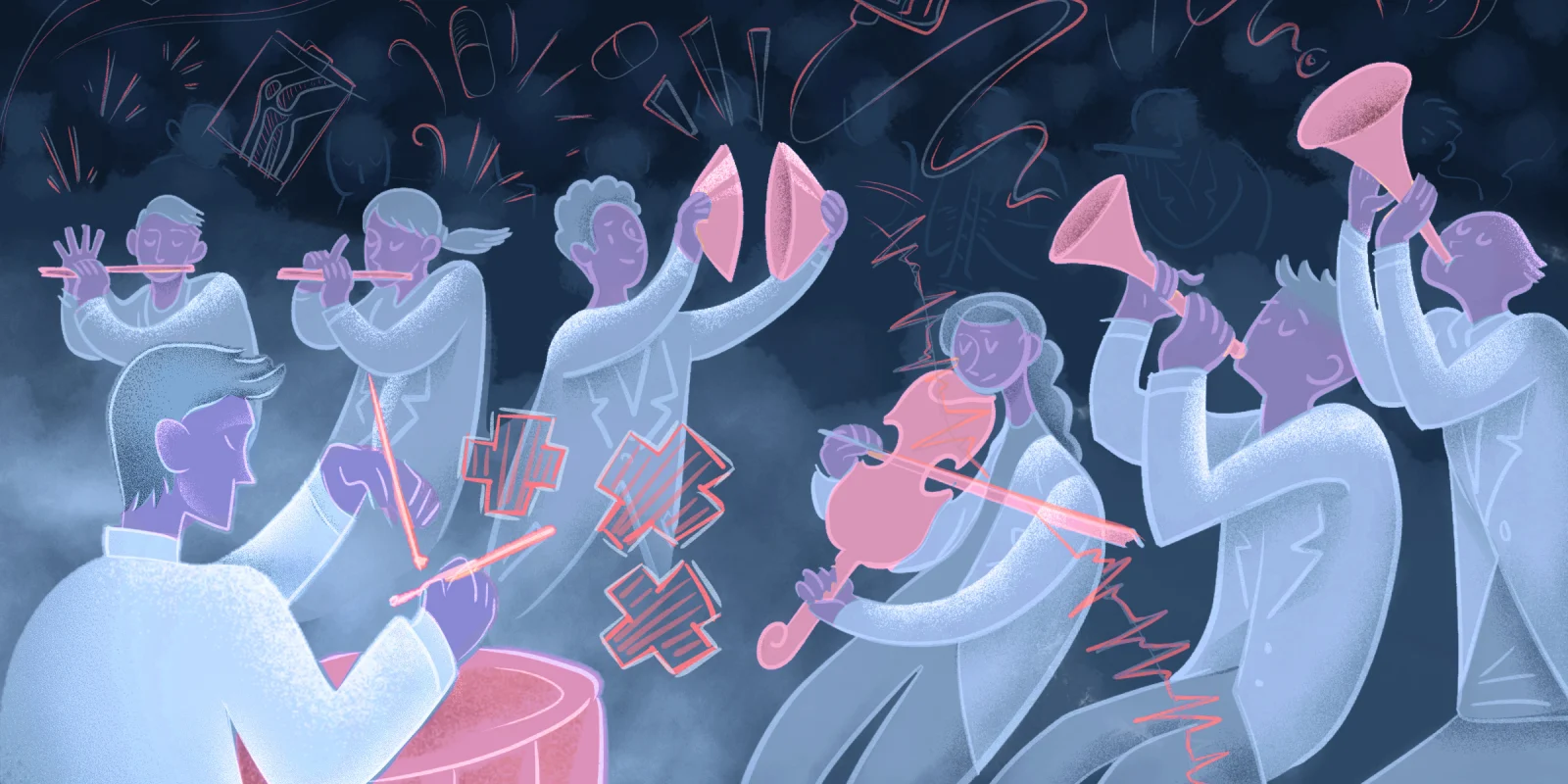
What would health care be like if we knew our colleagues’ creative talents? If we saw our team as people we can save lives with, and also make art with? That is what the community at The Medicine & The Muse Program within the Center for Biomedical Ethics at Stanford Medicine is seeking to address. Medicine & The Muse “integrates the arts and humanities into medical education, scholarly endeavors, and the practice of medicine.” It was founded more than 15 years ago by Dr. Audrey Shafer, MD, an anesthesiologist and poet. What started as a forum for medical students to share art has grown into academic offerings and a full host of programming for the Stanford community and beyond. Doximity interviewed Medicine & The Muse executive director Jacqueline Genovese and community leader Dr. Bryant Lin, MD.
Doximity: What kind of arts programming have you hosted?
Dr. Bryant Lin, MD: I was inspired to bring this work to attending physicians and some types of programming we’ve planned include a tour of our campus art museum, meditation, and concerts.
Dox: What has been the reception of your programming among the physician community?
BL: The virtual concerts have been great. In our second week, we had over 1,000 people tune in. It’s not just physicians; it’s nurses, medical students, everyone in our Stanford Medicine community.
Jacqueline Genovese: We were originally going to do a spring symphony with 44 physicians and a physician-conductor but it got cancelled because of COVID. This was Bryant’s idea of doing something musical and virtual. It started out as just physicians and broadened out to pre-med students. We’ve even had the children of physicians and employees perform. It’s built a great community and is a way for people to feel connected and less isolated. One physician said, “I had the worst week and then to come in and watch this [concert] was such a relief.”
Dox: Why do you think it’s important for clinicians to express themselves creatively?
JG: I’ve had a firsthand view of the pressures physicians face and I’ve had great empathy for them and how difficult of a job it can be. Medicine takes a lot of its structure from the military, and emotion and expression do not seem to have space in the clinical encounter. There needs to be a way for clinicians to process what happens.
BL: I fully agree. I studied engineering before I studied medicine. Even though we speak so much as medicine as a science, medicine at its heart is a human endeavor. And it can’t get more human than the humanities. I think that’s a key part of being a clinician, being in touch with the humanistic side of medicine.
Dox: What has been a memorable experience or performance for you doing this kind of work?
BL: Hosting is a performance, like Shakespeare once said, “All the world's a stage.” I’ve had a lot of favorite performances but for me I think it’s the ones with the families. It’s been really well-received and amazing to see a family singing together.
JG: For me, yes, the performances are amazing, but it’s more how people feel. In all that we do, our literature in medicine series, readings, dinner discussions, etc. people get reconnected to that part of themselves that made them want to get into medicine in the first place. I like to see that awakening. Like people who have wanted to try writing for a long time and are finally able. All of our programming is free and we try to make it as accessible to medical folks as possible. If I had to pick a favorite moment, it would be the first time I heard pediatric surgeon Dr. Matias Bruzoni, MD, sing. He sang Bruce Springsteen, who I love.
Dox: Are you a musician or artist yourself?
BL: I played violin growing up and I’ve been teaching myself a little bit of piano and guitar recently. In my clinic, the clinic chief is a very avid guitarist and he’s been one of our performers and performed with one of our colleagues who used to sing a cappella. People who love to perform, you can just see it on their faces. We’ve been able to tap into this pent up desire. There’s this underlying need. Every two weeks in our clinic, he would take out his guitar, we had a couple ukuleles, and we would go up to a conference room which he reserved and play for 30 minutes.
Dox: What advice do you have for clinicians interested in starting or sharing a creative hobby?
JG: I would say make time for it. It doesn’t have to be perfect; a lot of times physicians want to be perfect because their decision making can be life or death. Also, there’s a huge community out there already of physicians sharing their creativity. So go for it!
BL: Now is a good time if you’re at home and it supports your mental health and wellness. It can relax you at the end of your day in your own home. You don’t have to perform. When I practice a piece for 30 minutes that’s all I think about. I feel more centered afterwards. Clinicians love to learn things. So I think there’s a great opportunity now more than ever to learn whatever you want.
This interview was conducted by Angelica Recierdo, MS, BSN, Doximity Editor.
Illustration by April Brust






